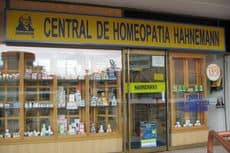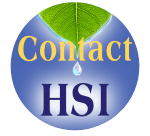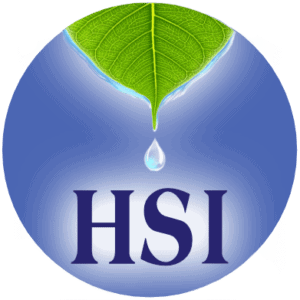What is Homeopathy?
Sir John Weir, dean of British Homeopathic Physicians and personal physician of several monarchs including the Queen and the Royal family of England, expressed the basic meaning of homeopathic treatment in a lecture at the Faculty of the Royal London Homeopathic Hospital in a few, plain words: “Remember, it is the patient who has to cure himself; the drug cannot cure him; the drug is only the stimulus which starts the vital reaction.” For over two centuries homeopathic treatment has used highly diluted natural substances (homeopathic remedies) to stimulate the body’s innate healing power.
“Today it is more widely recognized that every pathological condition, though in varying degrees, basically involves the psyche as well as the body.” (William Gutman, MD, President, Foundation for Homeopathic Research Inc). Building upon the intimate mind-body connection, the application of homeopathic remedies provides relief for both physical and emotional conditions. Homeopathy recognizes each person’s unique state of health. As a result, homeopathic remedies are selected expressly for an individual. Homeopathy is a system of healing based on extensive clinical documentation about the effects of homeopathic remedies on the individual (provings).
Homeopathy is:
- Effective
- Individualized
- Gentle
- Affordable
- Non-invasive
- Non-allergenic
- Non-toxic
- Non-addictive
What to expect from homeopathic treatment
Homeopaths listen; an initial homeopathic consultation usually lasts 1 1/2 to 2 hours. A thorough understanding of how you experience your health concerns is the basis of successful homeopathic treatment.
Although you may have a specific physical or emotional concern, a homeopath will compile a a wide range of factor sometimes seemingly unrelated to the actual health concern. These factors aid in identifying a homeopathic remedy that can stimulate the body’s vitality to restore health.
In a follow-up appointment, the practitioner meets with you to discuss the effects of the remedy and to make any necessary adjustments. In acute conditions, homeopathic remedies often result in immediate improvement. Long-term complaints may require several visits to restore complete well-being.

How does Homeopathy Work?
Homeopathy is based on the Law of Similars which is an ancient healing principal stating that “like cures like.” Simply put, a substance capable of producing certain symptoms when given to a healthy person will cure those same symptoms in an ill person.
For example: Peeled onions normally cause the eyes to tear. Consequently, a remedy prepared from onions by a homeopathic pharmacy may alleviate a watery eye condition such as allergies. In other words, “like cures like”.
Are Homeopathic Remedies Safe?
Homeopathic remedies are highly diluted, non-toxic preparations made by homeopathic pharmacies in accordance with the U.S. Homeopathic Pharmacopoeia and approved by the FDA. Homeopathic remedies are tasteless, odorless and taken orally.
Homeopathic treatment is safe for the elderly, children, and even infants. It is also safe and beneficial for animals. Homeopathic remedies appropriate for self-care are often sold at health food or drug stores in the U.S. and in pharmacies around the globe.



Homeopathic Pharmacies Around The World
Clockwise from top: Nelson’s Pharmacy, London, England
HSI Instructor Barbara Yarnell, CHom, CCH at Farmacia Homeopatica, Acapulco, Mexico
Central de Homeopatia, Santiago, Chile.
What can Homeopathy treat?
Homeopathy is very effective for a variety of conditions encompassing a wide range of acute and chronic complaints.
Adult health:
- grief
- anxiety
- mood swings
- fears and phobias
- fatigue
- sleeping disorders
- many physical complaints affecting
- respiration
- circulation
- digestion
- urination
- reproduction
- hormonal balance
- skin
- menopause
- movement
Children’s health:
- hyperactivity
- behavioral disorders
- poor concentration
- allergies
- bedwetting
- teething
- common childhood ailments
“Homeopathy cures a greater percentage of cases than any other method of treatment.” – Mahatma Gandhi
How did Homeopathy Develop?
Hippocrates first described the Law of Similars in the 4th century. However, it was not until Samuel Hahnemann (1755-1843), a brilliant German physician, applied the Law of Similars (Similia Similibus Currentur) in homeopathic treatment that it became a recognized method of healing.
Through his genius, observational skills, scientific research and extensive clinical documentation, Hahnemann provided the world with an innovative, effective and safe system of healing.

The Hahnemann Monument, Washington, DC


Samuel Hahnemann’s family home in Koethen, Germany

“The highest ideal of cure is rapid, gentle and permanent restoration of health.”
– Samuel Hahnemann
How do I find a Certified Homeopaths?
Homeopathy is an unlicensed profession in most states, so it is important to locate a qualified homeopath certified by a recognized school or professional organization. Certified Homeopaths are listed on the websites of the following organizations:
- Homeopathy School International – Certified Homeopaths
- Council for Homeopathic Certification
- North American Society of Homeopaths
“There have been two great revelations in my life. The first was bebop, the second was homeopathy.” – Dizzy Gillespie


